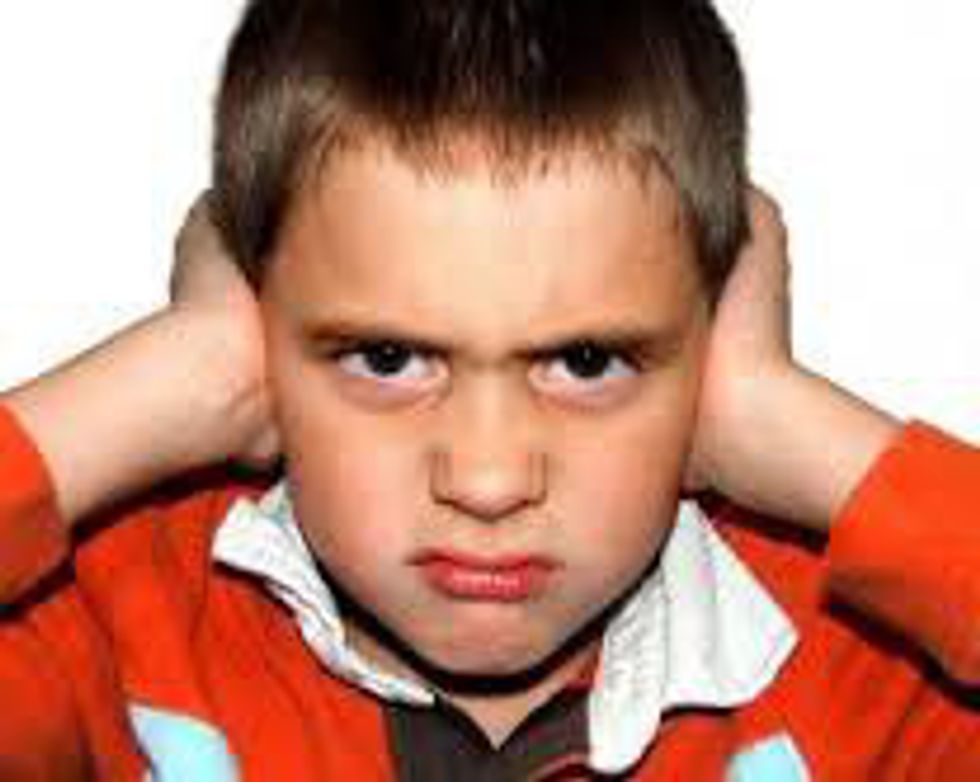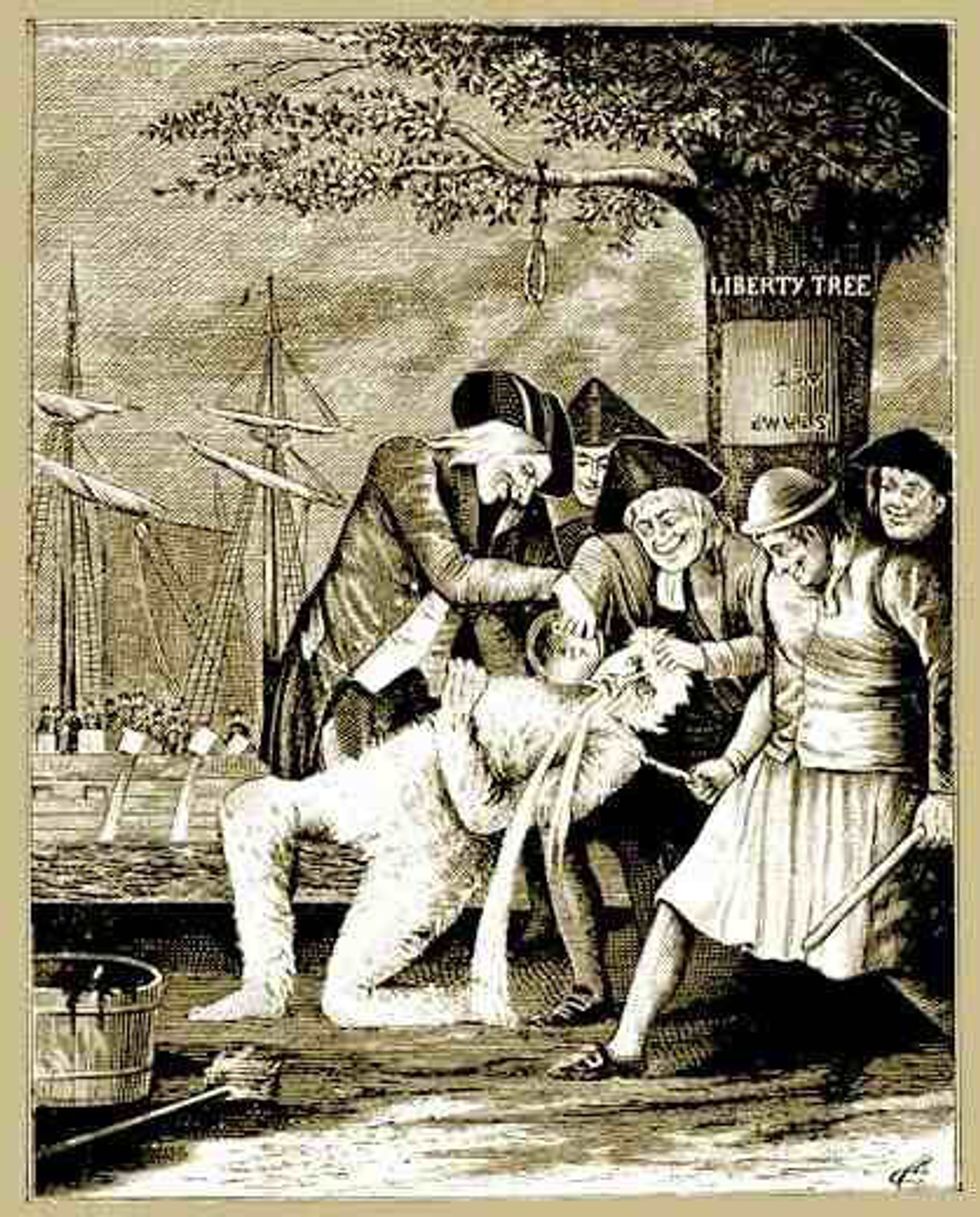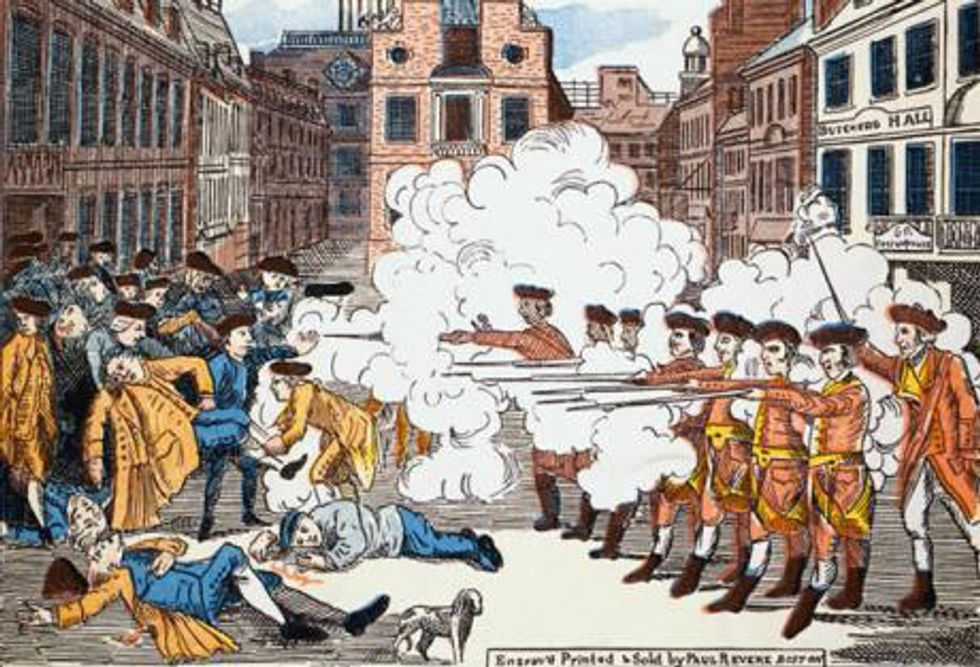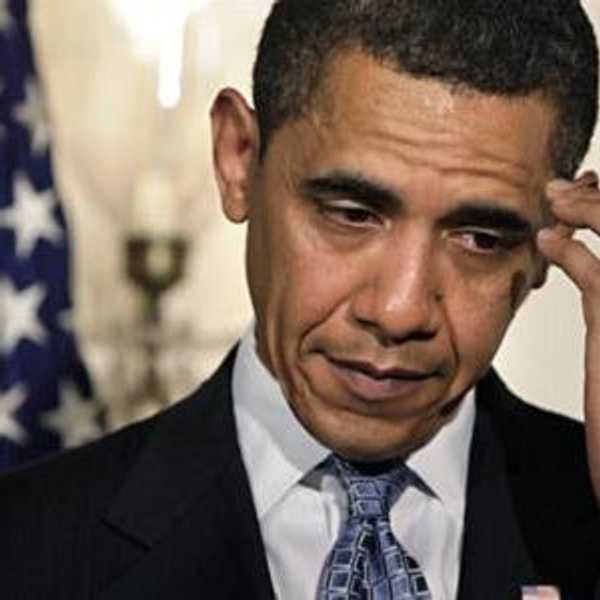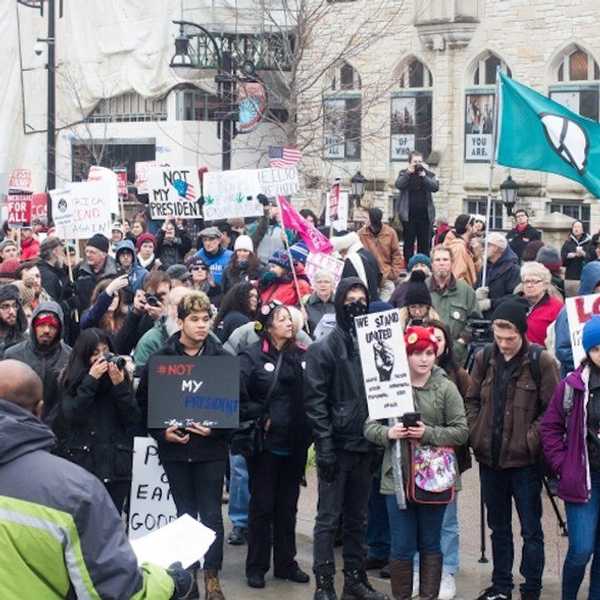Imagine you were a parent whose child just got called down to the principal's office of his high school. Apparently, your son continued to bother his history teacher with vulgar jokes and constant interruptions to the point that the professor had enough and spoke to the principal. You ultimately missed a day of work, but saved your son from being expelled. You get home that day exhausted from this little conference looking forward to eating lunch, but your wallet is empty. You then go to his room to grab some money from his allowance, he gets around $200 a month so I'm sure he wouldn't mind if you took $5 to get Wendy's. You're surprised when he gets infuriated at this "theft" of his money. You then ground him for how disrespectful he's acting, especially after defending him earlier that day. He then retaliates to your command by breaking your favorite vase and running out of the house. Baffled and angry you get in your mini van and chase after him. Now you have an idea of how the British felt when the colonists revolted in the late 1700s.
To begin with how the evil British got this view, lets look back around 20 years before the Revolution. The French and Indian War began in 1754 due to English colonists settling past the agreed upon boundary between England, France, and some Native American tribes. Settlements and farms past these borders were constantly fighting off Natives. Small but bloody conflicts were being fought between settlers and Native Americans. The British answered the colonists call for help by sending in troops to defend the settlers which soon lead to the natives seeking help from French forces in the the Northwest. Soon war broke out as both the British and the French saw the conflict as an opportunity to gain more territory. Ultimately the British won and expanded their colonial borders further west while striking deals with some of the native tribes for trade and protection. The English colonists rejoiced at the victory of the British but it would come at a price.
The Monarchy gained an exuberant amount of debt after the seven year war fought across the Atlantic and now faced a decision. Either continue to tax the the British people or tax the colonists who the war was fought over in the first place. The choice was simple for legislators and led to several acts including The Stamp Act of 1765, The Sugar Act, and the infamous Tea Act. Parliament was genuinely surprised at the outrage caused by these taxes, they had just fought a war for these people and now were being condemned. British tax officers were being beaten and harassed by rebellious youth (depiction of this in picture below) and the famous Boston Tea Party saw seventeen million pounds of tea sink straight down the Boston harbor. Benjamin Franklin, a founding father of the United States, even denounced the Boston Tea Party stating,"This was an act of piracy and the Americans should repay the British for the tea."
The British government then issued soldiers to try and quell these rebellious acts. Soon small fights broke out between angry colonists and the red coat soldiers. The Boston Massacre (pictured below) alongside continued legislation from Parliament were used by colonial revolutionaries to sway the public opinion against British. Headlines such as 'England Dares to Tax' and 'Unite or Die' alongside nicknames for legislation such as the 'Intolerable Acts' or the 'Coercive Acts' were effective propaganda to bolster hatred of the crown. British sympathizers in the colonies were also began being molested and harassed for siding with such tyranny. By 1776 the former 'jewel of the crown' was at war with their very makers.
While the colonists had several solid reasons to rise against the crown, the British could easily make an argument for fighting the rebellion in the colonies. But most history textbooks, movies, and articles will neglect to look at this other perspective. It furthers the concept of 'history is written by the victors', leading to a one sided view of how the world works. More often than not, one mans freedom fighter is another mans terrorist. Understanding this can change your worldview drastically and will lead to much more interesting debates in your history class. While most may not agree that the colonists were acting like 'whiny children', it's worth noting that the British maybe had a reason for being an 'overbearing mother'.




